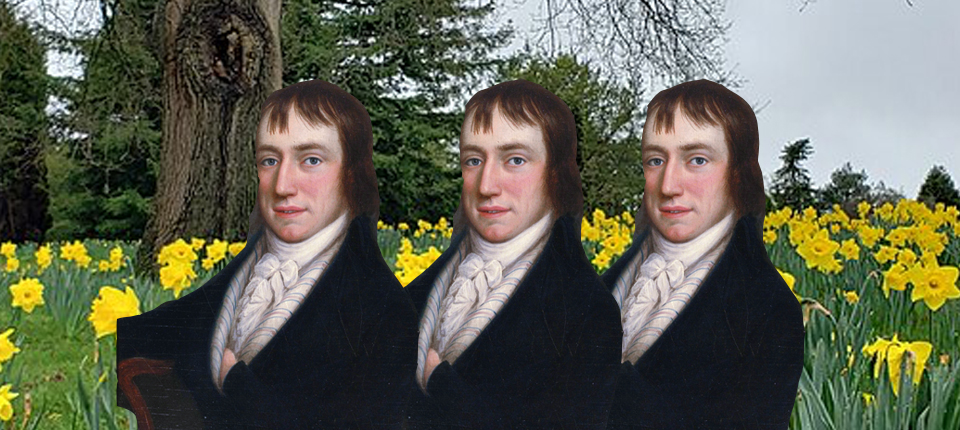Lit Hub Daily: April 15, 2024
THE BEST OF THE LITERARY INTERNET

TODAY: In 1802, William Wordsworth and his sister, Dorothy, see a “long belt” of daffodils, inspiring the former to pen ‘I Wandered Lonely as a Cloud.”
- “Darryl Lorenzo Wellington was for two years the sixth poet laureate of Santa Fe. He also sold his plasma to get by.” Alissa Quart on writers and the false promises of American opportunity in the first installment of a six part collaboration with Dirt. | Lit Hub
- “You are not the Messiah.” Steve Almond on writer’s block and egoless prose. | Lit Hub Craft
- Hampton Sides on Britain’s generations-long search for the Northwest Passage and the fight for colonial dominance. | Lit Hub History
- “She flops and flails at times, but in each of her earlier novels she’s writing her way toward her better work.” How Barbara Comyns wrote her way to The Juniper Tree. | Lit Hub Criticism
- Henry Hemming on Bloody Sunday, Frank Hegarty, and life in the IRA: “The situation was so bad that ordinary people like Frank Hegarty, with no history of violence, were becoming involved.” | Lit Hub History
- What can we learn from the Cold War? Adam E. Casey on America, China, and the future of revolutionary rule. | Lit Hub Politics
- “On the second day of May, the first Friday of the month, Hal’s current account was overdrawn by £291.13, including £120 of fees that had accumulated with each charge past the limit.” Read from Allen Bratton’s new novel, Henry Henry. | Lit Hub Fiction
- Corporate tech strikes again. In response to the pending California Journalism Preservation Act, intended to ensure news outlets get their fair share of revenue from the web, Google might remove links to California-based news publishers from search results. | The Verge
- Latin American authors are having a moment, and we hope it continues. | The Guardian
- From Italo Calvino to Roberto Rossellini: how postwar Italian filmmakers and writers revolutionized the arts. | Jacobin
- Jay Caspian Kang considers what phones are doing to reading. | The New Yorker
- “While Anderson’s text offers a compelling account of nationalism’s origins, then, it speaks little to the guises in which nationalism has reappeared in the twenty-first century.” Samuel Clowes Huneke reads Imagined Communites in a new age of nationalism. | The New Republic
- “Byron researchers usually face an overabundance of material, but his queerness is still a question of fragments.” On uncovering queerness in the letters of Lord Byron. | The Conversation
Article continues after advertisement



















